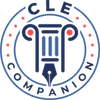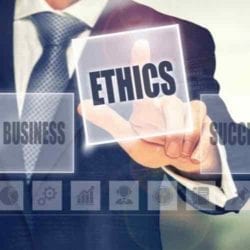Biography
Joseph A. Corsmeier is an “AV” rated attorney practicing in Clearwater, Florida. He concentrates his practice primarily in the areas of defense of attorney disciplinary matters before The Florida Bar, attorney admission matters before the Florida Board of Bar Examiners, and professional license and disciplinary matters before the Boards of the State of Florida. He provides expert analysis and opinion on conflict of interest and other attorney disqualification and legal malpractice issues and he has testified as an expert in both the federal and Florida courts.
Mr. Corsmeier served as an Assistant State Attorney in the Sixth Judicial Circuit from 1986 to 1990 where he prosecuted felonies exclusively from June 1987, and as Bar Counsel for The Florida Bar’s Department of Lawyer Regulation from 1990 to 1998. He also represents police officers as counsel to the Fraternal Order of Police.
Mr. Corsmeier is the author of numerous articles for many bar publications, he has spoken at numerous local and statewide seminars on various topics, including ethics and professionalism. He was an instructor of paralegal ethics at the Rollins College Tampa campus until it closed in 1996 and he is currently an adjunct professor at St. Petersburg College teaching paralegal ethics. He received his undergraduate degree from Florida State University and his J.D. from Mercer University.
Mr. Corsmeier is admitted to practice in all Florida Courts, the Supreme Court of the United States, the United States Court of Appeals for the Eleventh Circuit, and the Middle District of Florida. He is a member of The Florida Bar, American Bar Association, the Association of Professional Responsibility Lawyers, and the Clearwater and St. Petersburg Bar Associations.
Q. What are a lawyer’s duties related to confidentiality and technology competency?
A: In order to be competent in technology, a lawyer must: 1. Follow the Bar Rules and Bar Ethics Opinions; 2. Keep up with the latest technological developments related to technology, digital security, and retain and supervise third party technology vendors. These issues will be addressed in more detail during the webinar.
Q: How can a lawyer ensure compliance with the Bar rules and address risks in e-filing court documents?
A: In order to ensure compliance, a lawyer must: 1. Follow the Bar Rules and Bar Ethics Opinions; 2. Instruct non-lawyers and paralegals on the requirements of e-filing and supervise the non-lawyers: 3. Review all e-filing before it is filed, including any exhibits/attachments. These issues will be addressed in more detail during the webinar.
Q: Can lawyers keep client and other file documents on the “cloud” and use “cloud computing?
A: Yes, with caveats and due diligence requirements. This issue will be addressed in more detail during the webinar.
Q: Can a lawyer outsourcing paralegal and other services?
A: Yes, with caveats. A lawyer can outsource if appropriate steps are taken to prevent conflicts of interest and protect client confidentiality. This issue will be addressed in more detail during the webinar.
Q: Can a lawyer use remote internet access to client files and other documents and allow law firm employees to have remote access to files?
A: Yes, with caveats. A lawyer and law firm employees can be permitted to access client and other documents remotely if appropriate steps are taken to properly secure the documents and screens and private wi-fi networks are used and other steps are taken to protect client confidentiality if the access is in public. This issue will be addressed in more detail during the webinar.
Q: Can the lawyer use Digital Storage Devices such as digital copiers, smart phones, and other devices such as I-Pads and laptop computers?
A: Yes, with caveats. A lawyer must take steps to protect the files and client confidentiality. This issue will be addressed in more detail during the webinar.
Q: Should a lawyer blind copy a client with legal e-mails?
A: The best practice is not to blind copy the client. This issue will be addressed in more detail during the webinar.
Q: Should a lawyer be concerned about client confidential information in Metadata?
A: Yes, a lawyer should be concerned. This issue will be addressed in more detail during the webinar.
Q: Can a lawyer tell a client to “clean up” his or her Facebook page?
A: Yes, with caveats regarding spoliation allegations and other issues. This issue will be discussed in more detail during the webinar.
Q: Can a lawyer use “expert and specialist” in advertising?
A: It depends on the jurisdiction. This issue will be addressed in more detail during the webinar.


